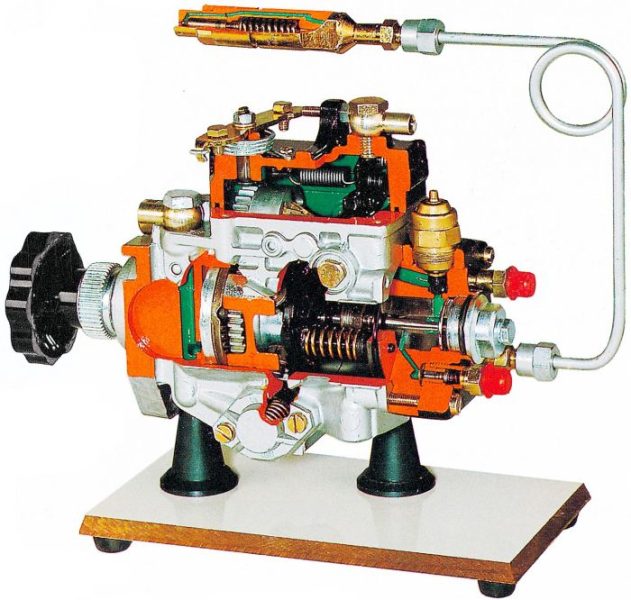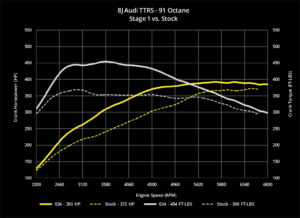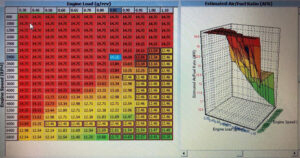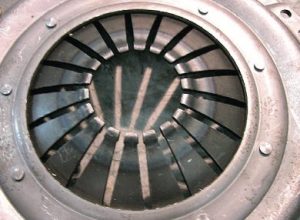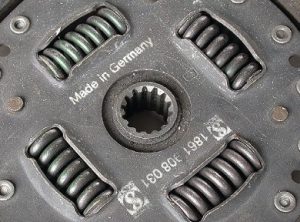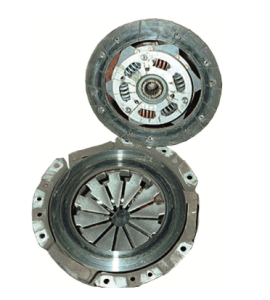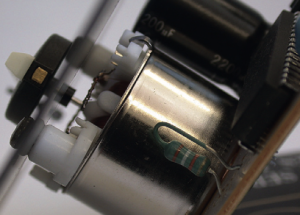The Bosch rotary injection pump, also known as the VE pump, is a mechanical fuel injection system used in diesel engines. Developed by the German company Bosch, this type of injection pump has been widely used in automotive, marine, and industrial applications since its introduction in the 1960s.
The basic principle of the rotary injection pump is to pressurize fuel and inject it into the engine cylinders at the right moment. Unlike modern common rail systems, which use high-pressure fuel rails to supply fuel to individual injectors, the VE pump is a self-contained unit that pressurizes fuel and delivers it to the injectors in a sequential manner.
The VE pump is a radial piston pump that uses a rotating distributor head to distribute fuel to the injectors. The pump consists of a camshaft that drives the pistons, a distributor head that rotates and controls the flow of fuel to the injectors, and a fuel supply pump that draws fuel from the fuel tank and pressurizes it.
The fuel supply pump draws fuel from the fuel tank and pressurizes it to about 4-6 bar. The pressurized fuel is then fed into the distributor head, which has ports that direct the fuel to the appropriate injector at the right time. The distributor head is driven by the camshaft, which rotates at half the engine speed. The camshaft has lobes that push the piston assembly in the pump, which in turn pressurizes the fuel and forces it out of the distributor head.
One of the main advantages of the VE pump is its simplicity. Unlike electronic fuel injection systems, the VE pump is entirely mechanical, which means it doesn’t require any electronic control units or sensors. This makes the VE pump more reliable and easier to maintain than modern electronic fuel injection systems.
Another advantage of the VE pump is its ability to deliver high fuel pressures at low engine speeds. This makes the VE pump ideal for use in heavy-duty diesel engines, where low-end torque is essential.
However, the VE pump does have some limitations. One of the main limitations is its inability to precisely control fuel delivery. Unlike modern common rail systems, the VE pump cannot vary the fuel pressure or the injection timing on a per-injector basis. This means that the VE pump is less efficient than modern fuel injection systems and produces more emissions.
In conclusion, the Bosch rotary injection pump, or VE pump, is a simple and reliable fuel injection system that has been widely used in diesel engines for decades. While it has some limitations, it remains a popular choice for heavy-duty applications where low-end torque is critical.
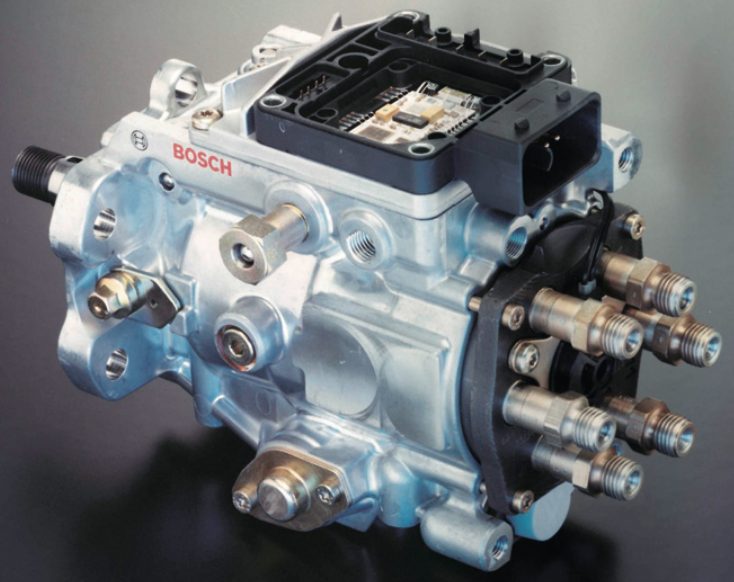
The VE pump is based on a rotary distributor principle, where a rotating head distributes the pressurized fuel to the individual injectors. The pump is designed to operate at engine speeds up to 5000 rpm and can deliver fuel pressures up to 1800 bar.
The heart of the VE pump is the camshaft, which is driven by the engine’s crankshaft. The camshaft has lobes that push on the pump’s pistons, which pressurize the fuel and deliver it to the distributor head.
The distributor head has a rotor with a number of ports, each of which corresponds to a particular injector. As the rotor rotates, the ports align with the fuel inlet and outlet passages, allowing fuel to flow to the appropriate injector at the right time.
The distributor head also has a pressure control valve, which regulates the fuel pressure in the pump. The pressure control valve is connected to a diaphragm that is exposed to the intake manifold pressure. This allows the pressure control valve to adjust the fuel pressure based on engine load and speed.
The VE pump is also equipped with a timing advance mechanism that adjusts the injection timing based on engine speed and load. The timing advance mechanism consists of a set of weights and springs that act on the camshaft, advancing or retarding the injection timing based on engine speed and load.
One of the most significant advantages of the VE pump is its simplicity. The pump is entirely mechanical, which means it doesn’t require any electronic controls or sensors. This makes the VE pump more reliable and easier to maintain than modern electronic fuel injection systems.
However, the VE pump does have some limitations. One of the main limitations is its inability to precisely control fuel delivery. The VE pump can only vary the fuel pressure and injection timing to a limited extent, which means it is less efficient than modern fuel injection systems and produces more emissions.
Overall, the Bosch rotary injection pump, or VE pump, is a reliable and robust fuel injection system that has stood the test of time. While it may not be as sophisticated as modern fuel injection systems, it remains a popular choice for heavy-duty diesel engines where reliability and low-end torque are critical.
Advantages of the Bosch Rotary Injection Pump:
- Simplicity: The VE pump is entirely mechanical, which means it does not require any electronic controls or sensors. This makes the VE pump more reliable and easier to maintain than modern electronic fuel injection systems.
- Durability: The VE pump is a robust and durable fuel injection system that can withstand harsh operating conditions. It has been widely used in heavy-duty diesel engines for decades, and its reliability has been proven in the field.
- Low-end torque: The VE pump is excellent at delivering high fuel pressures at low engine speeds, making it ideal for heavy-duty applications where low-end torque is critical.
- Cost-effective: The VE pump is a cost-effective fuel injection system compared to modern electronic fuel injection systems. Its simple design and low maintenance requirements make it a popular choice for many engine manufacturers.
Disadvantages of the Bosch Rotary Injection Pump:
- Limited precision: The VE pump cannot precisely control fuel delivery compared to modern fuel injection systems. It cannot vary the fuel pressure or injection timing on a per-injector basis, resulting in lower fuel efficiency and higher emissions.
- Noisy operation: The VE pump can produce more noise compared to modern fuel injection systems due to its mechanical operation.
- Limited power output: The VE pump is limited in terms of the maximum power output it can deliver. Modern electronic fuel injection systems can provide higher power output and better fuel efficiency.
- Limited compatibility: The VE pump is not compatible with alternative fuels such as biodiesel, which can cause clogging and other problems due to its lower lubricity.
Overall, the Bosch rotary injection pump, or VE pump, is a reliable and robust fuel injection system that has been widely used in diesel engines for decades. While it may not be as sophisticated as modern fuel injection systems, it remains a popular choice for heavy-duty applications where reliability and low-end torque are critical.

